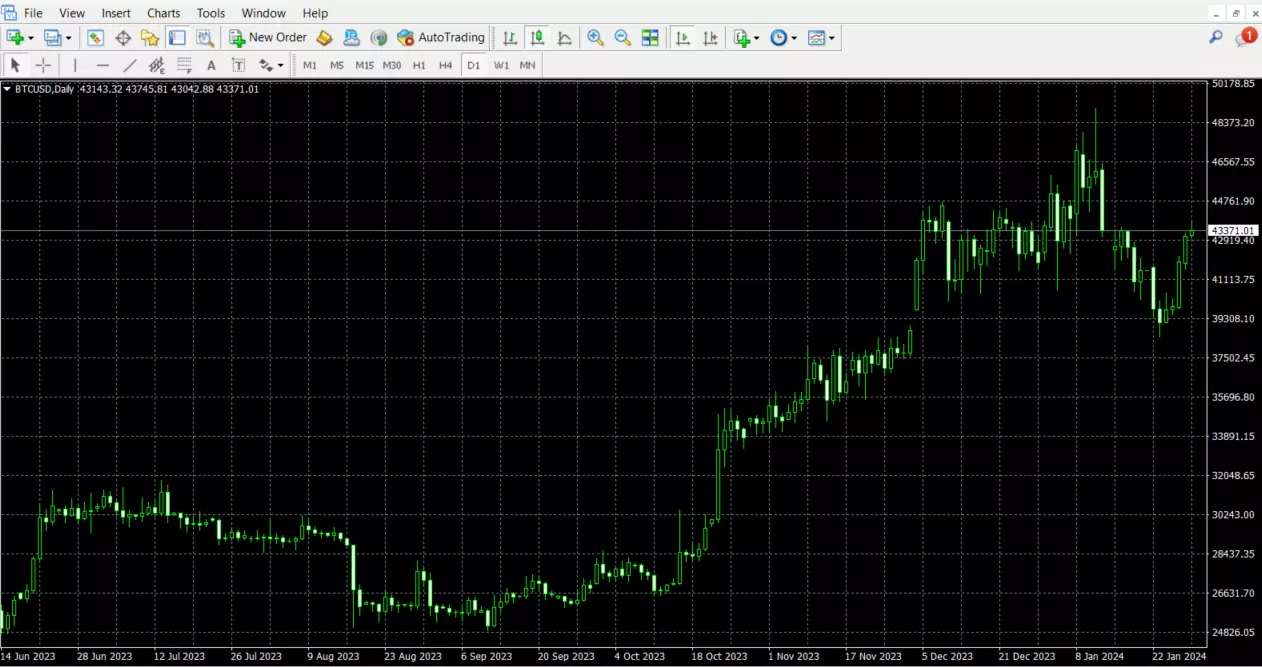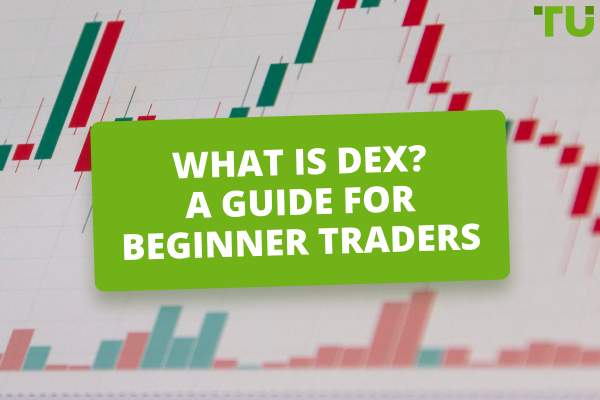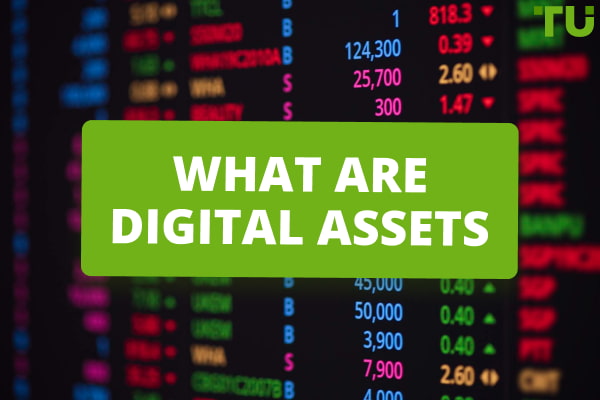Bitcoin CFD Forex Trading For Beginners: How Does It Work?
-
Trading Bitcoin as CFDs allows for leverage, amplifying both potential profits and risks
-
Forex brokers offer competitive fees, diverse trading pairs, and enhanced liquidity
-
The market is characterized by high volatility, providing both opportunities and challenges
-
Trading with regulated brokers offers a level of security and compliance
-
It's crucial to understand the risks and complexities involved, including market and liquidity risks
-
Effective risk management strategies are essential for successful trading in this dynamic market
Bitcoin Forex trading is emerging as a crucial intersection between conventional foreign exchange markets and cryptocurrencies. As investors seek to diversify their portfolios and tap into the unique opportunities presented by digital assets, the fusion of Forex and Bitcoin trading becomes increasingly relevant.
This article aims to demystify the realm of Bitcoin Forex trading, addressing the nuances and intricacies that set it apart from conventional trading practices. By exploring the pros and cons, particularly in the context of trading through Forex brokers, we offer a comprehensive guide to help both novice and seasoned traders navigate this dynamic sector.
-
Can you trade crypto with Forex?
Yes, you can trade cryptocurrencies with Forex through platforms that offer cryptocurrency CFDs (Contracts for Difference). This enables traders to speculate on the price movements of cryptocurrencies without owning the actual digital assets.
-
What is a Bitcoin Forex trading platform?
A Bitcoin Forex trading platform is a service provided by Forex brokers that allows traders to buy and sell Bitcoin, often as CFDs, alongside traditional currency pairs. These platforms combine the features of Forex trading with the volatility and dynamics of the cryptocurrency market.
-
Which is better: Bitcoin vs Forex trading?
The choice between Bitcoin and Forex trading depends on the trader's goals, risk tolerance, and market knowledge. Bitcoin trading offers high volatility and the potential for significant returns but comes with increased risk. In contrast, Forex trading involves more stable and established markets with potentially lower returns.
-
How do you trade crypto CFDs?
To trade crypto CFDs, you first need to open an account with a broker that offers cryptocurrency trading. Then, you speculate on the price movement of a cryptocurrency without actually owning it. Profit or loss is realized based on the difference between the price when the position is opened and when it is closed.
Why trade crypto with a Forex broker?
The integration of cryptocurrencies into Forex trading platforms presents a new frontier for traders.

The page dedicated to crypto CFD trading on ICMarkets Forex broker's website
The allure of trading Bitcoin and other cryptocurrencies through Forex brokers lies in the unique blend of traditional market mechanisms with the innovative features of the digital currency space. This integration offers a range of advantages, leveraging the strengths of both Forex and crypto trading environments.
Advantages of crypto CFDs
-
Leverage: Just as in traditional Forex trading, Bitcoin Forex trading platforms often offer leverage, a powerful tool that enables traders to amplify their trading positions using borrowed funds. This leverage can significantly increase potential profits, albeit with a corresponding increase in risk. For traders skilled in risk management, this feature can be a game-changer, providing the means to capitalize on even small market movements
-
Competitive Fees and Spreads: Trading cryptocurrencies through Forex brokers typically involves lower fees and tighter spreads compared to traditional crypto exchanges. These competitive conditions make Forex platforms an attractive option for traders looking to maximize their returns and minimize costs
-
Volatility: The cryptocurrency market is renowned for its high volatility, which presents unique opportunities for traders. While this volatility can be a double-edged sword, it allows for significant profits in a short period, especially for those adept at navigating these rapid market movements
-
Diverse Trading Pairs: Forex platforms often provide a broad spectrum of trading pairs, encompassing various cryptocurrencies and fiat currencies. This diversity enables traders to develop sophisticated trading strategies and take advantage of different market dynamics
-
Enhanced Liquidity: Forex brokers typically offer greater liquidity for cryptocurrency trading. Higher liquidity means faster execution of trades, which is crucial in the fast-paced crypto market. It can also lead to lower transaction costs, as the price does not significantly change during the execution of a large order
-
Regulation and Security: Trading with a regulated Forex broker offers a layer of security and compliance assurance. Traders can have peace of mind knowing that their funds are handled safely and that the broker adheres to legal standards
-
Flexible Deposit and Withdrawal Options: Forex platforms often provide a variety of options for depositing and withdrawing funds, accommodating a range of preferences and needs. This flexibility is particularly useful in the dynamic environment of crypto trading
-
Extended Market Hours: Unlike traditional markets, the cryptocurrency market operates 24/7, offering continuous trading opportunities. Forex brokers facilitating crypto trading often mirror this, providing traders with the ability to react to market movements at any time
-
Wide Range of Crypto Pairs: Traders have access to an expansive selection of crypto pairs on Forex platforms, beyond the typical offerings on standard crypto exchanges. This variety allows for more nuanced and diverse trading strategies
-
Robust Trading Platforms: Forex brokers provide sophisticated trading platforms equipped with advanced tools and features. These platforms are designed for efficiency and accuracy, essential for the fast-paced nature of crypto trading
-
Dedicated Support: Many Forex brokers offer dedicated customer support, providing assistance and guidance for traders. This support can be invaluable, especially for those new to crypto trading
-
Short Selling Capabilities: Forex platforms often allow short selling, enabling traders to profit from falling prices, a feature not universally available in traditional crypto exchanges
-
API Access: Advanced traders benefit from API access, which allows for the integration of automated trading strategies and custom tools, enhancing trading efficiency and effectiveness
-
Staking and Farming: While not universally available, some Forex brokers are beginning to integrate staking or farming features for cryptocurrencies, offering additional avenues for earning returns on crypto holdings
These advantages collectively make trading cryptocurrencies through Forex brokers an attractive proposition, especially for those seeking to leverage the benefits of both the Forex and crypto trading worlds. However, it's essential to also consider the flip side, as this approach comes with its own set of challenges and risks.
Disadvantages of Crypto CFDs
While trading cryptocurrencies as Contracts for Difference (CFDs) through Forex brokers offers several advantages, it's crucial to balance this perspective with an understanding of the potential downsides. These disadvantages can impact trading strategies and outcomes, especially for those new to the arena of crypto CFDs.
-
High Leverage Risks: Although leverage can amplify profits, it equally amplifies losses, especially in the volatile crypto market. This heightened risk can lead to significant financial losses, particularly for inexperienced traders who might not fully understand the implications of trading on margin
-
Complexity and Understanding: Trading crypto CFDs involves a certain level of complexity. Understanding the nuances of CFDs, leverage, and the volatile nature of cryptocurrencies requires a steep learning curve. This complexity can be daunting and potentially risky for novice traders. So choosing the right broker is one of the most important decisions you can make because it's not just about finding a platform that offers Bitcoin CFDs and futures; it's about finding a platform that fits your trading style, goals, and risk tolerance.
-
Overnight Financing Costs: Holding CFD positions overnight incurs financing costs, which can accumulate significantly over time. These costs can eat into profits, especially in trades that do not move favorably or are held for extended periods
-
No Ownership of Actual Cryptocurrency: When trading crypto CFDs, traders do not own the actual cryptocurrency. This means they cannot use these assets for transactions outside the trading platform or benefit from certain aspects of cryptocurrency ownership, such as participating in the blockchain ecosystem
-
Market and Liquidity Risks: Despite the generally high liquidity in Forex markets, specific market conditions or extreme volatility can lead to liquidity issues. This can result in slippage, where trades are executed at a different price than expected, potentially leading to higher losses
-
Regulatory Risks: The regulatory environment for cryptocurrencies and CFDs is still evolving. Changes in regulations can affect the availability, conditions, or legality of trading crypto CFDs, potentially impacting traders' strategies and investments
-
Limited Cryptocurrency Selection: While Forex brokers offer a variety of crypto pairs, their selection may still be limited compared to dedicated cryptocurrency exchanges. This limitation can restrict trading strategies focused on less popular or emerging cryptocurrencies
-
Counterparty Risk: In CFD trading, the broker is the counterparty to every trade. This dependency exposes traders to the risk associated with the broker's solvency and reliability. Ensuring the broker is reputable and regulated becomes crucial
-
Platform Dependency: Traders are reliant on the broker's platform for trading crypto CFDs. Any technical issues, maintenance, or downtime can impact trading activities, potentially leading to missed opportunities or inability to close positions
BTC/USD: Example of trade
Imagine a scenario where a trader anticipates a bullish movement in the BTC/USD market. After thorough analysis, the trader decides to enter a long position when BTC/USD is trading at $40,000. The trader uses a leverage of 10:1, investing an initial margin of $4,000 to control a position worth $40,000.
As predicted, the market moves favorably, and the BTC/USD price rises to $41,000. Sensing a peak, the trader decides to close the position. The profit calculation for this trade is as follows:
-
Entry Price: $40,000
-
Exit Price: $41,000
-
Price Movement: $41,000 - $40,000 = $1,000
-
Leverage Used: 10:1
Therefore, the profit is $1,000 (price movement) x 10 (leverage) = $10,000.

BTC/USD: Example of trade
However, if the market had moved against the trader's prediction, the scenario would be different. Suppose the BTC/USD falls to $39,000 instead. The loss calculation would be:
-
Entry Price: $40,000
-
Exit Price: $39,000
-
Price Movement: $40,000 - $39,000 = -$1,000 (loss)
-
Leverage Used: 10:1
The loss would then be -$1,000 (price movement) x 10 (leverage) = -$10,000.
This example illustrates the significant impact of leverage in crypto trading. While it can amplify profits, it equally magnifies losses, underscoring the importance of careful risk management and strategy in Bitcoin Forex trading.
What is the best Forex broker to trade cryptocurrency?
If you’re looking to trade cryptocurrencies using a Forex broker, the following table outlines some of the best options currently available to you:
| Broker | Minimum Deposit | Cryptocurrencies available | Account types available for Bitcoin trading |
|---|---|---|---|
$100 |
ADA/USD, BCH/USD, BTC/USD, DOT/USD, DSH/USD, EOS/USD, ETH/USD, LTC/USD, TRX/USD, XLM/USD, XMR/USD, XRP/USD. |
Standard, Fixed, ECN |
|
$200 |
Bitcoin, Bitcoin Cash, Cardano, Chainlink, Dash, Dogecoin, EOS, Ethereum, Litecoin, Polkadot, Ripple, Stellar Lumens, Tezos, Uniswap etc. |
cTrader, TradingView, MetaTrader 4 and MetaTrader 5 |
|
$100 |
26 cryptocurrencies, including Bitcoin, Ethereum, Ripple etc. |
FxPro MT4 Instant (with fixed spreads), FxPro MT4 Instant (with floating spreads), FxPro MT4 Market, FxPro MT5, FxPro cTrader, VIP-account |
|
$100 |
Bitcoin, Bitcoin Gold, Dash, EOS, IOTA, Ripple, Bitcoin Cash, Litecoin, Ethereum, Stellar, NEO, etc. |
Standard, Demo |
|
$1 |
Вitcoin, Bitcoin Cash, Dash, Ethereum, Eos, Litecoin, Stellar, Monero, Ripple, Zcash, etc. |
Trade MT4, Trade MT5 |
|
$1 |
Bitcoin, Litecoin, Ethereum, Ripple, Bitcoin Cash, etc. |
Standard, Pro, Zero, Raw Spread |
|
$10 |
Bitcoin, Litecoin, Namecoin, Peercoin, Emercoin, Ripple, Eos, IOTA, Monero, NEO, Omni, etc. |
Crypto account, crypto 10 account |
Conclusion
Venturing into the realm of Bitcoin Forex trading demands more than just a keen interest in the digital currency market. It requires a solid foundation in market analysis and a deep understanding of the risks involved. For beginners, the journey starts with educating themselves about the dynamic nature of cryptocurrency markets and the intricacies of Forex trading.
Implementing robust risk management strategies is essential This involves setting clear trading goals, understanding leverage implications, and being prepared for the volatility that defines crypto markets. Ultimately, success in Bitcoin Forex trading hinges on a balanced approach, combining informed decision-making with prudent risk management, ensuring that traders navigate this challenging yet rewarding space with confidence and strategic foresight.
Glossary for novice traders
-
1
Investor
An investor is an individual, who invests money in an asset with the expectation that its value would appreciate in the future. The asset can be anything, including a bond, debenture, mutual fund, equity, gold, silver, exchange-traded funds (ETFs), and real-estate property.
-
2
Cryptocurrency
Cryptocurrency is a type of digital or virtual currency that relies on cryptography for security. Unlike traditional currencies issued by governments (fiat currencies), cryptocurrencies operate on decentralized networks, typically based on blockchain technology.
-
3
Long position
A long position in Forex, represents a positive outlook on the future value of a currency pair. When a trader assumes a long position, they are essentially placing a bet that the base currency in the pair will appreciate in value compared to the quote currency.
-
4
Bitcoin
Bitcoin is a decentralized digital cryptocurrency that was created in 2009 by an anonymous individual or group using the pseudonym Satoshi Nakamoto. It operates on a technology called blockchain, which is a distributed ledger that records all transactions across a network of computers.
-
5
Short selling
Short selling in trading involves selling an asset the trader doesn't own, anticipating its price will decrease, allowing them to repurchase it at a lower price to profit from the difference.
Team that worked on the article
Vuk stands at the forefront of financial journalism, blending over six years of crypto investing experience with profound insights gained from navigating two bull/bear cycles. A dedicated content writer, Vuk has contributed to a myriad of publications and projects. His journey from an English language graduate to a sought-after voice in finance reflects his passion for demystifying complex financial concepts, making him a helpful guide for both newcomers and seasoned investors.
Dr. BJ Johnson is a PhD in English Language and an editor with over 15 years of experience. He earned his degree in English Language in the U.S and the UK. In 2020, Dr. Johnson joined the Traders Union team. Since then, he has created over 100 exclusive articles and edited over 300 articles of other authors.
Tobi Opeyemi Amure is an editor and expert writer with over 7 years of experience. In 2023, Tobi joined the Traders Union team as an editor and fact checker, making sure to deliver trustworthy and reliable content. The topics he covers include trading signals, cryptocurrencies, Forex brokers, stock brokers, expert advisors, binary options.
Tobi Opeyemi Amure motto: The journey of a thousand miles begins with a single step.











